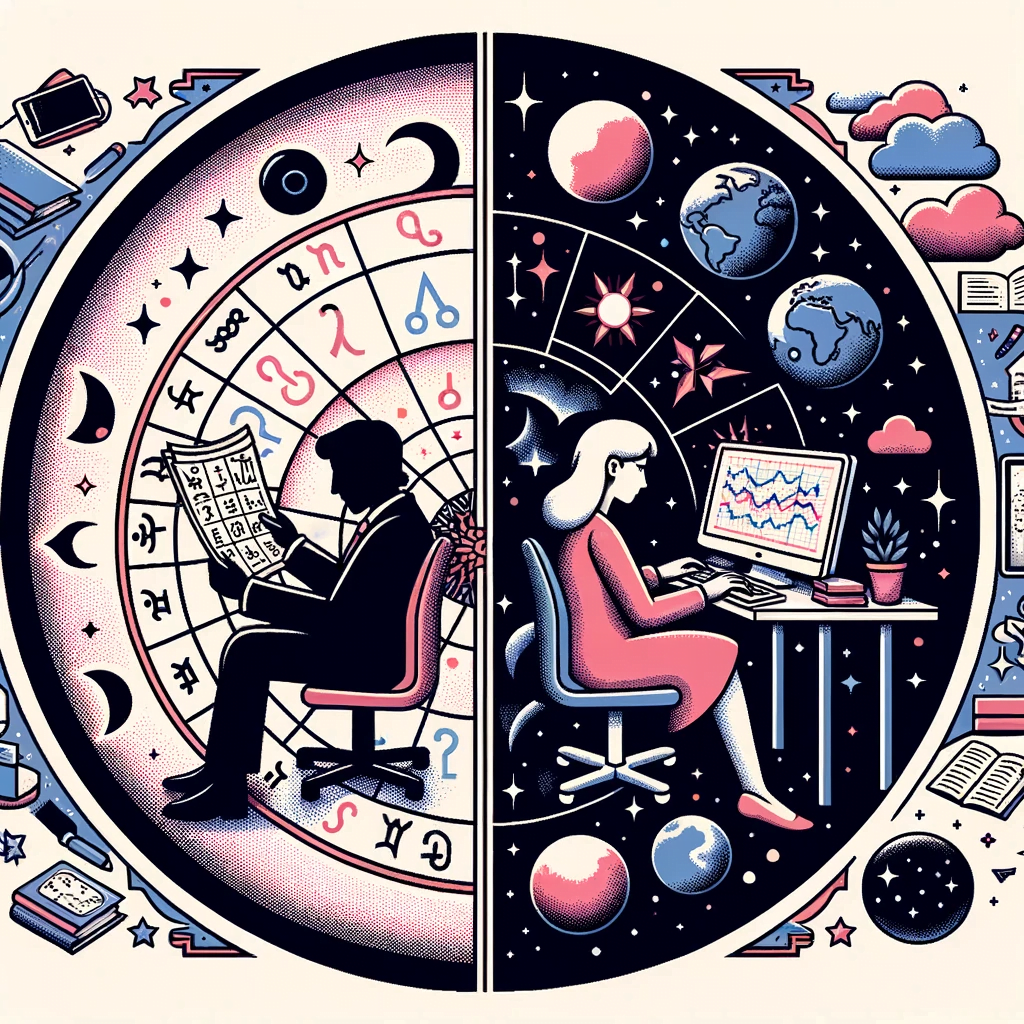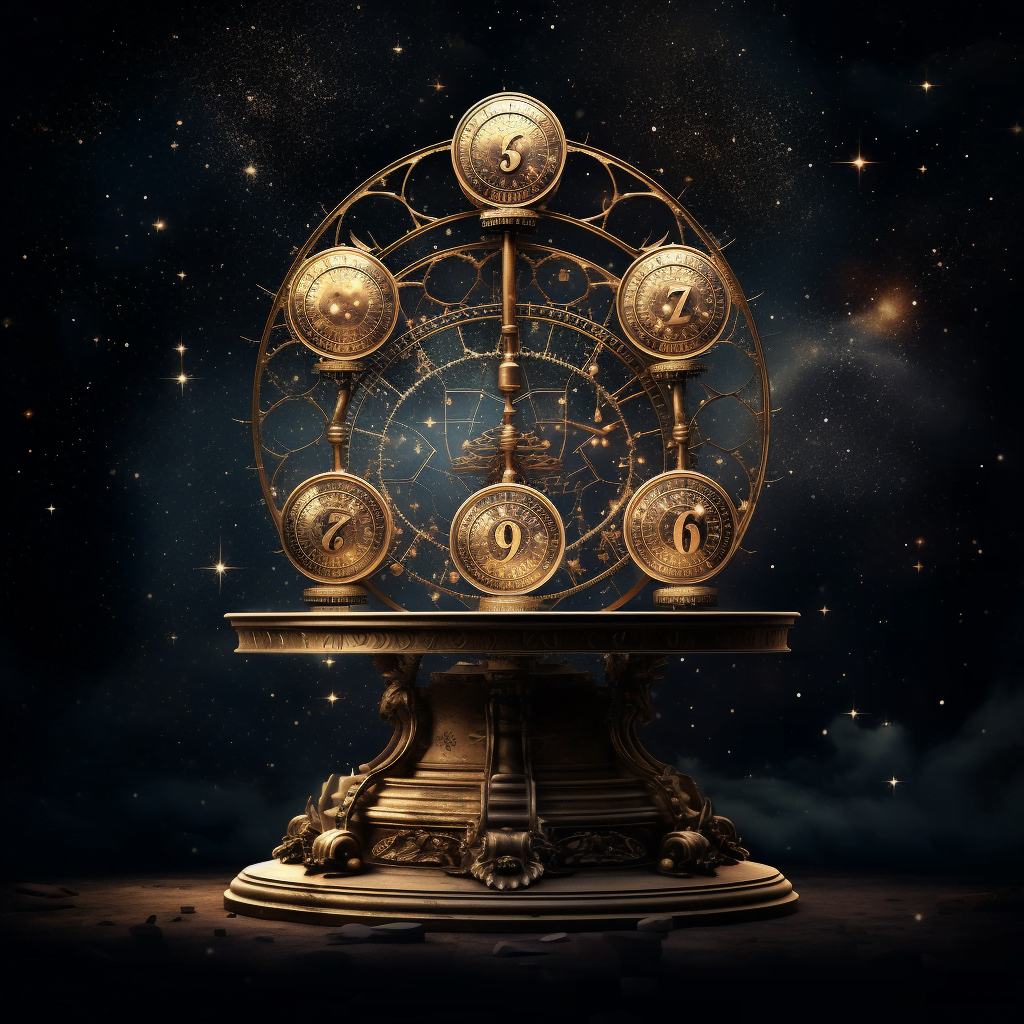Have you ever wondered why so many people are captivated by their zodiac signs? The answer lies in the fascinating realm of psychology. This article explores the underlying reasons behind the widespread belief in zodiac signs and how they offer individuals a sense of validation, guidance, and connection to something greater than themselves. From personality traits to predictions, the influence of astrology on human behavior and beliefs is a captivating subject worth exploring.
The Basics of Astrology
Definition of astrology
Astrology is a belief system that suggests a connection between the positions and movements of celestial bodies and events and personalities of individuals. It is based on the notion that the alignment of stars and planets at the time of someone’s birth can influence their character traits and destinies.
Brief history of astrology
Astrology dates back thousands of years and can be traced to ancient civilizations such as the Babylonians, Egyptians, and Greeks. In the early stages, astrology was closely linked to astronomy and was practiced by scholars and philosophers. Over time, astrology became more accessible to the general population and evolved into various forms and interpretations.
Types of astrology
There are several different types of astrology, each with its own approach and emphasis. Some popular forms include Western astrology, Vedic astrology, Chinese astrology, and Mayan astrology. Western astrology, which is most commonly practiced in the Western world, divides the zodiac into twelve signs based on the Earth’s orbit around the Sun.
The Appeal of Zodiac Signs
Need for meaning and control
One reason people are drawn to astrology is the desire for meaning and control in their lives. Astrology offers a framework that suggests there is a higher purpose or plan behind events and personal characteristics. By attributing certain traits and experiences to the influence of celestial bodies, individuals can feel a sense of understanding and control over their lives.
Personality validation
Believing in zodiac signs can provide validation for individuals’ personality traits. Many people find comfort in the idea that their strengths and weaknesses are influenced by cosmic forces. By ascribing their behavior to the alignment of the stars, astrology gives individuals a sense of acceptance and justification for who they are.
Sense of belonging
Astrology also offers a sense of belonging and community. The identification with a specific zodiac sign allows individuals to feel connected to a larger group of people who share the same sign. Horoscope readings and compatibility assessments create opportunities for social connection and discussions about shared experiences and traits.
Confirmation Bias and Astrology
Definition of confirmation bias
Confirmation bias is a psychological tendency to seek out information that confirms one’s existing beliefs, while ignoring or minimizing contradictory evidence. It is a common cognitive bias that affects individuals in various aspects of life, including their beliefs in astrology.
Seeking information that confirms beliefs
When people believe in astrology, they often actively seek out information that supports their beliefs. They may read horoscopes that align with their desired outcomes or characteristics, disregarding any conflicting predictions. This selective information processing reinforces their belief in astrology.
Ignoring contradictory evidence
Confirmation bias can lead individuals to disregard or downplay any evidence that contradicts astrology. When faced with information that challenges their beliefs, people may rationalize or discount it as coincidences or exceptions. This bias can create a self-reinforcing cycle, further strengthening their belief in astrology.
Barnum Effect and Astrology
Definition of the Barnum Effect
The Barnum Effect, also known as the Forer Effect, refers to the tendency for individuals to believe generalized statements about their personality that are actually vague enough to apply to anyone. This effect is named after the famous showman P.T. Barnum, who used this technique to impress his audience.
Desire for personal relevance
The Barnum Effect occurs because people have a strong desire for statements to be personally tailored to them. When individuals read or hear generalized statements that could apply to anyone, they often interpret them as highly specific and accurate descriptions of themselves. This desire for personal relevance makes individuals more susceptible to the lure of astrology.
Generalized statements can apply to anyone
Astrology often relies on generic descriptions and predictions that can be interpreted in various ways. Statements such as “you are a confident and compassionate person” or “you will encounter challenges in your career” are intentionally vague and open to interpretation. This flexibility allows people to apply these statements to their own lives, reinforcing their belief in astrology.
Astrological Readings and Self-Fulfilling Prophecies
Positive expectations influence behavior
Astrological readings can shape individuals’ expectations and influence their behavior. When people read positive predictions about their future, they subconsciously develop higher expectations. These positive expectations can impact their mindset, confidence, and motivation, leading them to take actions that align with the predicted outcomes.
Creating self-fulfilling prophecies
A self-fulfilling prophecy occurs when an individual’s belief in a prediction leads them to unknowingly fulfill that prediction through their actions. For example, if someone reads that they will have a successful romantic relationship, they may approach potential partners with more optimism and put in extra effort to make the prediction come true.
Attributing outcomes to astrology
When events align with astrological predictions, individuals tend to credit astrology for their accuracy. Even if the predicted outcome is fairly general, individuals may attribute their successes or positive experiences to the influence of celestial bodies. This attribution reinforces their belief in astrology and further strengthens their conviction.
Subjective Validation and Astrology
How subjective validation works
Subjective validation refers to the tendency of individuals to interpret and perceive information in a way that confirms their preexisting beliefs or desires. In astrology, subjective validation plays a significant role as people filter and interpret statements from horoscopes to fit their personal experiences and traits.
Interpreting vague statements
Astrology often relies on statements that are intentionally vague and open to interpretation. These statements can be seen as a form of subjective validation, as individuals interpret them in a way that aligns with their own experiences and desires. For example, a horoscope mentioning a challenging period can be seen as relating to personal difficulties or obstacles that an individual is going through.
Finding meaning in ambiguous predictions
Astrology’s reliance on ambiguous predictions leaves room for individuals to find personal meaning. When faced with a prediction that is open to different interpretations, individuals tend to choose the one that resonates most with their current circumstances or desires. This process of finding individual meaning within astrological predictions reinforces their belief in the accuracy of astrology.
Role of Cognitive Biases in Believing in Zodiac Signs
Availability heuristic
The availability heuristic is a cognitive bias in which individuals rely on readily available information to make judgments or decisions. In the case of astrology, people may remember instances when a horoscope prediction seemed accurate or aligned with an event in their life. This availability of “evidence” can contribute to their belief in astrology.
Anchoring bias
Anchoring bias occurs when individuals rely too heavily on an initial piece of information when making subsequent judgments or decisions. In astrology, individuals may anchor their beliefs to the initial descriptions of their zodiac sign or specific predictions they found compelling. This anchoring effect can make it challenging for individuals to objectively reevaluate their beliefs.
Illusory correlation
Illusory correlation is a psychological phenomenon where individuals perceive a relationship between variables that does not actually exist. In astrology, people may perceive a correlation between their zodiac sign and specific personality traits or life events, even if there is no objective evidence to support such a connection. This illusory correlation reinforces their belief in astrology.
Personality Traits and Zodiac Signs
Mapping personality traits to zodiac signs
Astrology often assigns specific personality traits to each zodiac sign. Individuals may relate to and identify with these assigned traits, finding them accurate descriptions of their own personalities. However, these assignments are based on generalizations and do not account for the vast individual differences that exist within each zodiac sign.
Barnum statements and generic descriptions
Barnum statements are generalized statements that could apply to almost anyone. Astrology relies on these types of statements to describe the characteristics and behaviors associated with each zodiac sign. While many people find some level of accuracy in these descriptions, they are intentionally vague and can be interpreted to fit a wide range of individuals.
Impact of belief on behavior
Belief in astrology can impact individuals’ behavior as they strive to embody the traits associated with their zodiac sign. If someone believes they are hot-headed because of their Aries zodiac sign, they may be more likely to act impulsively or attribute their impulsive actions to their zodiac identity. This self-perception can influence their behavior and reinforce their belief in astrology.
Social Influence and Astrology
Desire to fit in with others
The desire to fit in is a strong human motivator, and astrology offers a way for individuals to connect with others who share the same interest. Believing in zodiac signs allows individuals to find a sense of belonging within a community of like-minded people, creating an opportunity for social bonding and acceptance.
Influence of friends and family
Friends and family play a significant role in shaping individuals’ beliefs in astrology. If someone grows up in an environment where astrology is strongly valued and discussed, they are more likely to adopt those beliefs themselves. The influence of loved ones, especially those with authority or perceived wisdom, can reinforce the belief in astrology.
Astrology in popular culture and media
The popularity and presence of astrology in popular culture and media contribute to its appeal and acceptance. Astrological references can be found in newspapers, magazines, and online platforms, making it difficult to escape its influence. Celebrities endorsing or practicing astrology further perpetuate its credibility, leading more people to believe in its validity.
Psychological Factors in Astrology Belief
Emotional comfort and astrology
Astrology can provide individuals with emotional comfort by offering explanations, hope, and reassurance during challenging times. Believers may turn to astrology for guidance, solace, or support, particularly when facing uncertainty or significant life decisions. The belief in astrology provides a sense of stability and emotional well-being.
Coping with uncertainty
Uncertainty is a common and uncomfortable aspect of life. Astrology offers individuals a perceived sense of control and predictability by suggesting that cosmic forces influence their lives. Believing in astrology allows individuals to cope with uncertainty by attributing events or experiences to the influence of celestial bodies rather than random chance.
Sense of control and predictability
Astrology provides a framework that helps individuals make sense of their lives and feel a sense of control over their destinies. By ascribing their successes, failures, and personal traits to the alignment of stars and planets, individuals gain a perceived sense of understanding and influence over their lives. This sense of control and predictability can be comforting and empowering.
In conclusion, people believe in zodiac signs for various psychological reasons. The appeal of astrology lies in the desire for meaning, control, and a sense of belonging. Psychological phenomena such as confirmation bias, the Barnum Effect, subjective validation, and cognitive biases play roles in reinforcing and perpetuating belief in astrology. Additionally, factors like social influence, the impact on personality traits, and the psychological benefits of astrology contribute to its widespread acceptance. While astrology may not have a scientific basis, its popularity and influence continue to shape the way individuals view themselves, their lives, and their place in the universe.



